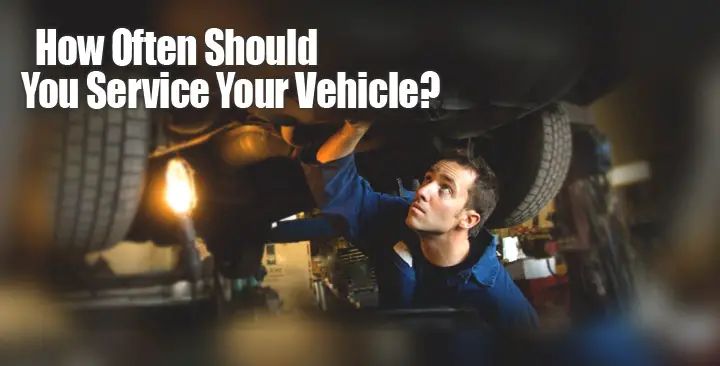Regular maintenance is crucial to keeping your Toyota car in top shape for years to come. Servicing your car at the recommended intervals not only ensures smooth and safe operation, but it can also prevent costly repairs down the road. However, the question on the minds of many Toyota owners is: “How often should I get my Toyota car serviced?”
As a general rule of thumb, Toyota recommends following the maintenance schedule outlined in your owner’s manual. This helps to ensure that your car receives the attention it needs at the right times. Here’s a closer look at the typical service intervals for your Toyota car:

Credit: www.kellycar.com
Toyota’s Recommended Service Intervals
Toyota’s service intervals are designed to keep your car in optimal condition and are based on the type of driving you do. Whether you have a Toyota Camry, Corolla, RAV4, or any other model, the recommended service intervals generally follow a similar pattern.
| Service Type | Interval |
|---|---|
| Oil Change | Every 5,000 to 10,000 miles, or every 6 to 12 months |
| Tire Rotation | Every 5,000 to 7,500 miles, or every 6 months |
| Brake Inspection | Every 5,000 to 10,000 miles, or every 6 to 12 months |
| Fluid Checks | Every 5,000 to 7,500 miles, or every 6 months |
These are just general guidelines, and the specific intervals for your car may vary. Always refer to your owner’s manual for the most accurate information.
Factors Affecting Service Frequency
While the recommended service intervals provide a good starting point, there are several factors that can affect how often you should service your Toyota car.
- Driving Conditions: If you frequently drive in stop-and-go traffic, extreme temperatures, or dusty environments, your car may need more frequent servicing.
- Mileage: High-mileage vehicles may require more frequent maintenance to ensure continued reliability and performance.
- Age of the Car: Older vehicles may need more frequent attention to address wear and tear on components.
Benefits of Regular Servicing
Adhering to the recommended service intervals for your Toyota car offers several important benefits:
- Longevity: Regular maintenance can help prolong the life of your car.
- Performance: Servicing helps ensure optimal performance and fuel efficiency.
- Safety: Proper maintenance reduces the risk of unexpected breakdowns or malfunctions on the road.
- Resale Value: A well-maintained car can fetch a higher resale value when the time comes to sell or trade it in.
It’s also worth noting that sticking to the recommended service intervals can keep your warranty intact, providing added peace of mind.

Credit: www.oxmoortoyota.com
Consult with Your Toyota Service Professional
While general guidelines are useful, every car is unique, and individual driving habits and conditions can affect service needs. Your best resource for determining the ideal service schedule for your Toyota car is your trusted Toyota service professional.
They have the knowledge and expertise to assess your specific driving needs and can recommend a personalized maintenance plan to keep your car running at its best.
By partnering with a qualified service technician and following the manufacturer’s recommended service intervals, you can ensure that your Toyota car remains reliable, efficient, and safe for years to come.
Frequently Asked Questions For How Often Should You Get Your Car Serviced Toyota
How Often Should You Get Your Car Serviced?
It is recommended to get your Toyota car serviced every 6,000 to 10,000 miles or every six months, whichever comes first.
Why Is Regular Car Servicing Important?
Regular car servicing is crucial to maintain the performance, longevity, and safety of your Toyota. It helps identify and address potential issues before they escalate, ensuring optimal functioning of the vehicle.
What Happens If You Don’t Service Your Toyota Regularly?
Failing to service your Toyota regularly can lead to various problems such as decreased fuel efficiency, engine damage, and increased risk of breakdowns. Regular servicing helps prevent major issues, saves money in the long run, and ensures a smooth driving experience.
